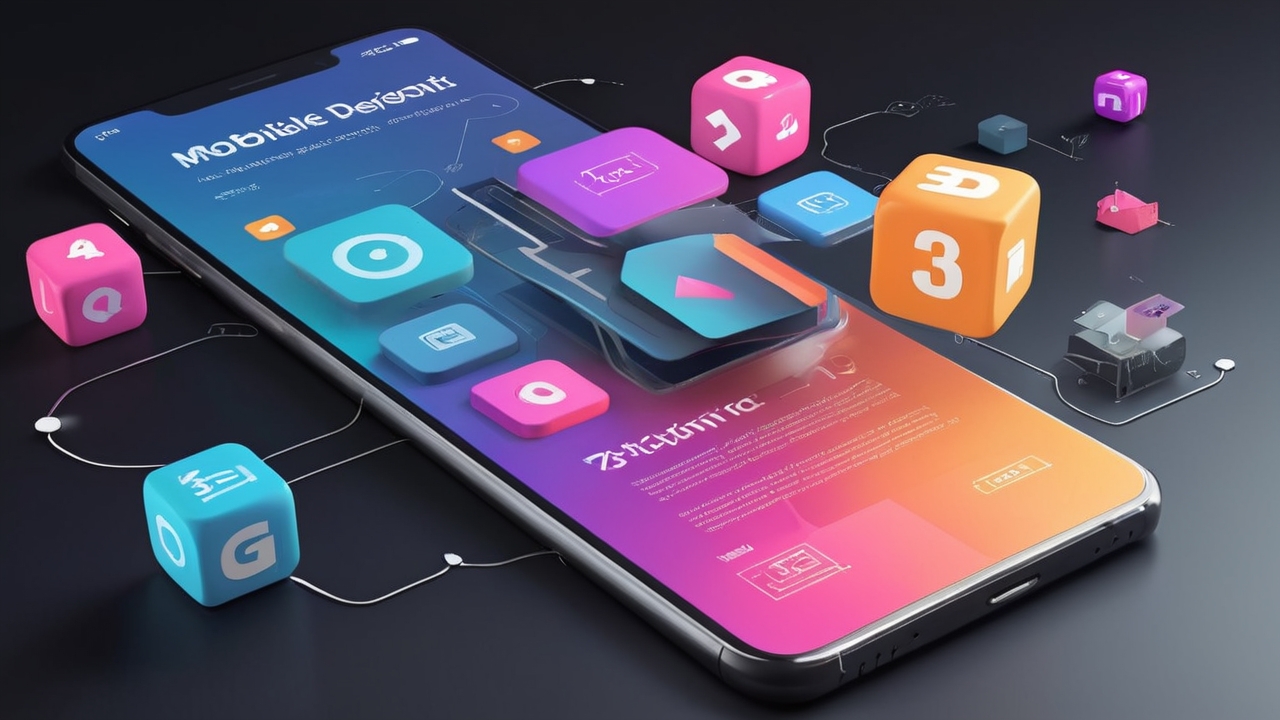The Future of Mobile App Development: Trends, Technologies, and Transformations
Mobile app development has come a long way since the early days of simplistic, single-function apps. As we look to the future, the landscape of mobile app development promises even more dynamic changes, fueled by rapid technological advancements and evolving user expectations. Here’s a glimpse into the trends, technologies, and transformations shaping the future of mobile app development.
1. 5G Technology: The Catalyst for Innovation
The rollout of 5G networks is set to revolutionize mobile app development. With its ultra-fast speeds, lower latency, and higher connectivity, 5G will enable more sophisticated, data-intensive applications. Augmented reality (AR) and virtual reality (VR) apps, real-time gaming, and high-definition video streaming will become more seamless and accessible, enhancing user experiences significantly.
2. AI and Machine Learning: Enhancing User Personalization
Artificial intelligence (AI) and machine learning (ML) are already transforming mobile apps by providing personalized experiences. In the future, AI and ML will play an even more pivotal role in app development. Predictive analytics, voice and image recognition, and personalized content recommendations will become standard features. Apps will become smarter, adapting to user behavior and preferences to deliver highly tailored experiences.
3. AR and VR: Creating Immersive Experiences
AR and VR technologies are set to redefine how users interact with mobile apps. From gaming and entertainment to education and retail, AR and VR will provide immersive experiences that blur the lines between the digital and physical worlds. As these technologies become more advanced and accessible, developers will find new and innovative ways to integrate them into apps, offering users unique and engaging experiences.
4. Cross-Platform Development: Efficiency and Consistency
The demand for apps that run seamlessly across multiple platforms is driving the adoption of cross-platform development tools. Frameworks like Flutter, React Native, and Xamarin enable developers to write code once and deploy it on both iOS and Android. This approach not only reduces development time and costs but also ensures a consistent user experience across different devices.
5. IoT Integration: Connecting the Digital and Physical Worlds
The Internet of Things (IoT) is expanding rapidly, with more devices becoming interconnected. Mobile apps will play a crucial role in managing and controlling these IoT devices. Smart homes, wearable devices, and connected cars are just the beginning. As IoT technology advances, mobile apps will become central hubs for monitoring and interacting with a wide range of connected devices, offering users unprecedented convenience and control.
6. Blockchain Technology: Enhancing Security and Transparency
Blockchain technology offers significant potential for mobile app development, particularly in areas requiring enhanced security and transparency. From secure payment systems and identity verification to supply chain management and data privacy, blockchain can address many of the security concerns associated with mobile apps. As blockchain technology matures, its integration into mobile apps will likely increase, providing users with more secure and reliable services.
7. Voice and Gesture Control: Redefining User Interactions
Voice assistants like Siri, Google Assistant, and Alexa have already made voice control a familiar feature. The future will see even more sophisticated voice and gesture control capabilities integrated into mobile apps. This shift will make apps more accessible and intuitive, allowing users to interact with them in more natural and convenient ways.
8. Progressive Web Apps (PWAs): Bridging the Gap
Progressive Web Apps (PWAs) offer the best of both web and mobile apps, providing users with a native app-like experience through a web browser. PWAs are gaining popularity due to their ability to work offline, load quickly, and deliver a seamless user experience without requiring downloads or installations. As PWA technology advances, we can expect more businesses to adopt this approach, bridging the gap between traditional web and mobile apps.
9. Focus on User Experience (UX): The Key to Success
In the future, user experience will remain a critical factor in the success of mobile apps. Developers will need to prioritize intuitive design, fast loading times, and smooth navigation to meet user expectations. As competition intensifies, apps that offer exceptional UX will stand out and thrive in the crowded marketplace.
Conclusion
The future of mobile app development is bright and full of potential. With advancements in technology and evolving user needs, developers have a wealth of opportunities to create innovative and impactful applications. By staying ahead of trends and embracing new technologies, the next generation of mobile apps will undoubtedly transform the way we live, work, and play.

